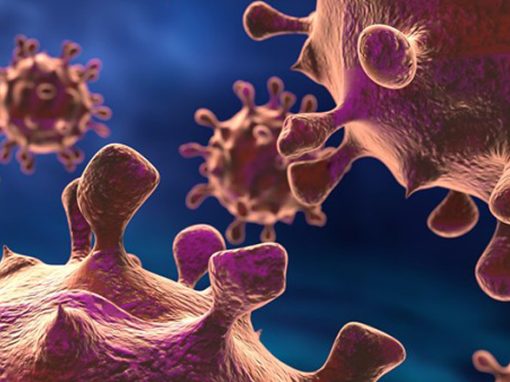Last week, the UK Prime Minister Rishi Sunak announced plans to review the fit note system for people who aren’t well enough to work, with a focus on mental health. His speech given on 19 April 2024 continued a rhetoric from the Conservative party regarding mental...
Schizophrenia
1 - 2%
of people are affected by schizophrenia
20 years
average reduced life expectancy for those with the condition
£5.1 million
is spent on research into schizophrenia each year in the UK
Related Conditions:
What is Schizophrenia?
Schizophrenia is a chronic mental health condition, often starting in late adolescence. People often experience psychosis meaning that they lose some contact with reality.
Schizophrenia affects how a person behaves, thinks, and feels. The lost sense of reality can cause significant distress for individuals and their loved ones.
"Schizophrenia can be devastating - but through research we can provide better and more effective treatments."
Joshua Roffman
What are the signs and symptoms?
Symptoms of schizophrenia are classified into positive symptoms, negative symptoms and cognitive difficulties.
Positive symptoms are any experiences that are added to reality, these include psychotic symptoms such as hallucinations, delusions, and disorganized thinking.
Hallucinations
People with schizophrenia may experience things that don’t exist. For example, they may hear, see, smell or sense things that no one else can. People with schizophrenia commonly experience auditory hallucinations, they tend to hear voices in their head, sometimes commenting on their actions or commanding them to do something.
Delusions
A person with schizophrenia may have strong beliefs based on mistaken and unrealistic views. This is known as a delusion. Delusions can affect the way a person behaves in front of people. Examples of delusions include thinking people are following them, that people are out to get them or kill them, or that their food or water is being poisoned.
Disorganized thinking
Schizophrenia affects a person’s cognitive thinking. For example, they might start talking quickly or slowly, switch topics, or their words may be jumbled. This makes it hard for others to make sense of what is happening and it may be difficult to hold conversations.
Negative symptoms are any experiences that are taken away from reality. Some signs include:
Loss of interest in pleasurable activities
People with schizophrenia may lose interest in activities such as hobbies or they may have a reduced sexual drive.
Social withdrawal - people with schizophrenia can appear to lose interest in social interactions with people around them and appear emotionless.
Cognitive difficulties
People with schizophrenia may find it harder to concentrate, process information, and make decisions. They may have trouble keeping to a schedule or completing what they have started.
Struggle with daily life
People with schizophrenia may stop caring about their hygiene and stop bathing. They may struggle with their sleep and often change their sleeping patterns.
What are the causes of schizophrenia?
The causes of schizophrenia are thought to be related to a combination of genetic and environmental factors which interact to affect the way the brain develops.
Genetic inheritance
If there is a close relative who has schizophrenia, there is an increased likelihood of developing the disorder. There are many genetic risk factors for schizophrenia but each one only increases their chance of developing the condition by a small amount.
Brain Development
Schizophrenia is now considered a neurodevelopmental disorder meaning that the connections of brain networks are different between some parts of the brain. Some genetic risk factors can affect neurodevelopment.
Environmental factors
These can include exposure to viral infections in the womb, to adverse life events in childhood, living in an urban area, and drug misuse.
What are common treatments for schizophrenia?
Treatment is best guided by a medical doctor who specializes in diagnosing and treating mental health conditions. Currently, there is an emphasis on early interventions to improve outcomes for those living with this condition.
Medication:
Antipsychotic medication: This medication reduces the frequency and intensity of psychotic symptoms (positive symptoms of hallucinations and delusions) and helps people live with their condition. These medications include risperidone, olanzapine, aripiprazole, sulpiride and clozapine.
Therapy:
Cognitive Behavioural Therapies
A range of CBT therapies is available to help people manage the condition and the resulting cognitive difficulties.
Arts Therapies
Art therapies such as art, music, dance, or drama therapies allow people with schizophrenia to express their experiences in a non-verbal way, which can help them recognise thoughts and reduce symptoms.
Support Groups:
CMHT - Communal Mental Health Teams
CMHT supports people with schizophrenia with their day-to-day tasks whilst ensuring independence. These teams consist of psychiatrists, psychologists, mental health nurses and social and support workers who provide treatment and support from the first experience of schizophrenia.
Care Programme Approach
As everyone experiences things differently, this program is designed to ensure that treatment is personalised. Through assessments, care plans, key workers appointed and review, people with this condition will work together with their healthcare team and develop care plans such as crisis plans.
Crisis Resolution Teams
CRTs treat people who are currently experiencing a psychiatric crisis. CRTs usually treat people in their home as it is the least restrictive environment. After treating the crisis, they also form an aftercare plan to reduce or prevent further crises.
Voluntary and compulsory detention
A psychiatrist or someone experienced with treating psychoses may believe that it is necessary for a person to be admitted to a psychiatric ward at a hospital or clinic if they are having serious schizophrenic episodes.
Family Education and Support
Family therapy involves talking about schizophrenia, discovering ways to support a family member with schizophrenia, and how to help them with practical problems. Family education provides this knowledge and helps a family cope.
What help and resources are available for people who need support or further advice?
Information and advice can help people gain a better understanding of Schizophrenia. Understanding the disorder will ensure informed decisions can be made of where to get help or treatments to use.
- MQ- Schizophrenia Awareness (See here)
- NHS (See here)
- National Institution of Mental Health (See here)
- Mind (See here)
- Royal College of Psychiatrist (See here)
Support Groups:
Support groups help them cope with the disorder and get access to professional treatment and people who are experiencing the same conditions.
- Hearing voices network (See here)
- National paranoia Network (See here)
- Rethink Mental Illness (See here)
What are the recent developments in research for Schizophrenia?
Genetic Risk and Interaction between epilepsy and psychiatric conditions
Dr Symon Kariuki is looking at genetic information with the aim to discover genetic risk factors associated with these conditions, in the hope of understanding more about how they develop as well as a potential treatment for these conditions. Find out more.
Identifying cellular mechanisms of disease and novel therapeutic targets in neurons derived from patients with schizophrenia
Dr Sergiu Pasca and his team are creating 3D cell cultures to create cells that more closely mimic natural tissues than cells which grow in traditional flat petri dishes. As a result, Sergiu and his team can now answer fundamental questions about the formation of the cerebral cortex, and the outer layer of the brain responsible for our most advanced functions, which are linked to schizophrenia. Find out more.
Genetic and genomic drivers of network phenotypes in health and disease
Dr Petra Vertes and her team at the University of Cambridge are looking at genetic data and brain scans to discover biological processes responsible for psychosis. By brain scanning healthy volunteers, people who have experienced psychosis, and groups that are at risk, Petra’s study hopes to provide the basis to create better treatments that target vital networks in the brain to improve the lives of people who have schizophrenia. Find out more.
Virtual Reality as a method of delivering social cognitive therapy in psychosis
Associate Professor Andrew Thompson will work with virtual reality experts and people with mental health problems to create a training package that helps people to feel more comfortable in social situations, and then recreate them. This project will investigate whether virtual worlds can be immersive and realistic enough to deliver effective therapy. Find out more.
Want to see more of our mental health research? See how our world-class researchers are working tirelessly to better understand, diagnose and treat mental illness.
Enjoying this insight? Want to see more like it?
By funding research we can transform what it means to experience anxiety, advancing treatments and improving the lives of millions of people.
Our research into schizophrenia

Increasing access to social prescribing for people living with severe mental illnesses at risk of cardiovascular disease
People with severe mental illnesses are at high risk of heart disease due to lack of physical activity and social isolation. Social prescribing can help, but is it accessible? More about this project

Understanding infectious disease mortality in people with severe mental illness
People with severe mental illnesses are more likely to die from infectious disease than the general population, however little is known about why. More about this project

How does genetics and the environment affect treatments for schizophrenia?
Antipsychotic medications used to treat schizophrenia can cause adverse side effects. Being able to predict these will improve treatments. More about this project
Related Posts
Tributes to Lea Milligan, MQ’s CEO
It is with great sadness that we announce the death of MQ’s CEO Lea Milligan who passed away following a sudden illness on Monday the 15th of April. Lea dedicated his life to helping other people. He turned down a place at Oxford University, deciding instead to launch...
How Stress Can Affect Mental Health
This Stress Awareness month, we’re considering how stress affects people differently and what to look for if you’re stressed. Although stress is not a mental illness, it can be the cause of, and the symptom of one. Some people are more responsive to stressful...
Read next
View our research projects
Read more about different mental health conditions
Our research projects
Explore how our world-class researchers are working tirelessly to tackle mental illness.
View our research projects
Mental health conditions
Learn more about different mental health conditions, and the research we're doing to transform the lives of those affected by them.
Read more about different mental health conditions
Take part in research
How you can get involved in mental health research.


